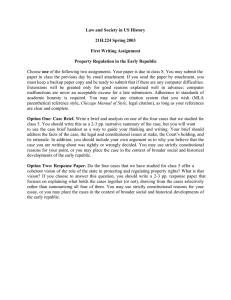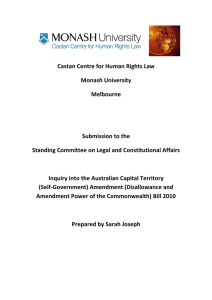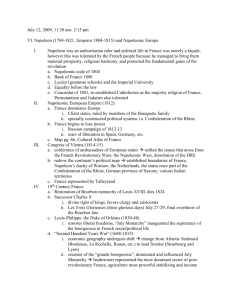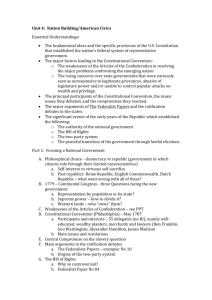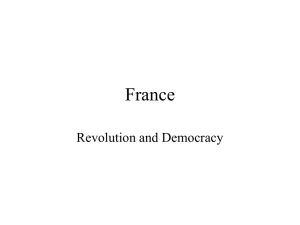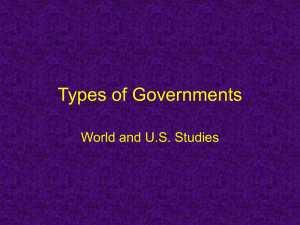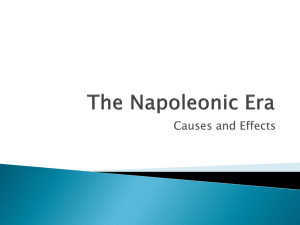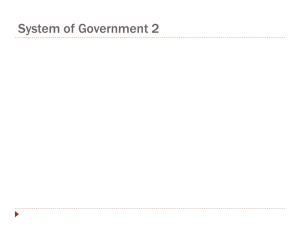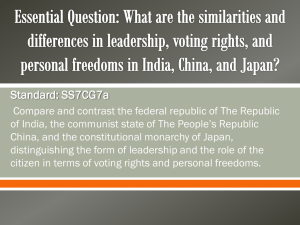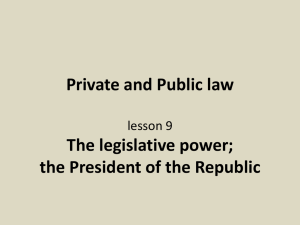FRAGMENTED ATTACHMENTS*
advertisement
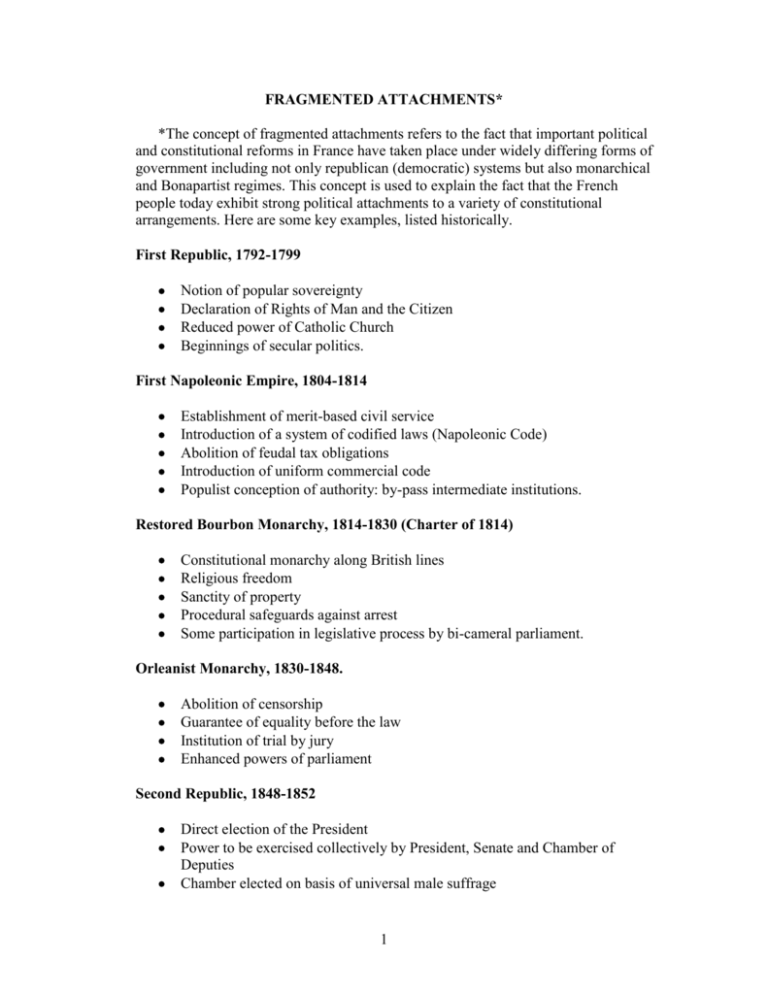
FRAGMENTED ATTACHMENTS* *The concept of fragmented attachments refers to the fact that important political and constitutional reforms in France have taken place under widely differing forms of government including not only republican (democratic) systems but also monarchical and Bonapartist regimes. This concept is used to explain the fact that the French people today exhibit strong political attachments to a variety of constitutional arrangements. Here are some key examples, listed historically. First Republic, 1792-1799 Notion of popular sovereignty Declaration of Rights of Man and the Citizen Reduced power of Catholic Church Beginnings of secular politics. First Napoleonic Empire, 1804-1814 Establishment of merit-based civil service Introduction of a system of codified laws (Napoleonic Code) Abolition of feudal tax obligations Introduction of uniform commercial code Populist conception of authority: by-pass intermediate institutions. Restored Bourbon Monarchy, 1814-1830 (Charter of 1814) Constitutional monarchy along British lines Religious freedom Sanctity of property Procedural safeguards against arrest Some participation in legislative process by bi-cameral parliament. Orleanist Monarchy, 1830-1848. Abolition of censorship Guarantee of equality before the law Institution of trial by jury Enhanced powers of parliament Second Republic, 1848-1852 Direct election of the President Power to be exercised collectively by President, Senate and Chamber of Deputies Chamber elected on basis of universal male suffrage 1 Second Napoleonic Empire, 1852-1870 Chief Executive “responsible to the French people” Third Republic, 1875-1940 Indirect election of President by Senate and Chamber Weak executive, powerful legislature: cabinet collectively responsible to Parliament Senate indirectly elected by representatives of rural communes Conversion of peasantry to republicanism Formal disestablishment of Catholic Church Fourth Republic, 1946-1958 Initiated first economic modernization plan, post-war prosperity Initiated extensive social legislation: paid vacations for workers, comprehensive medical insurance; subsidies to families with children Began decolonization: loi cadre of 1957 Began France’s integration into European Coal and Steel Community and Common Market 2

